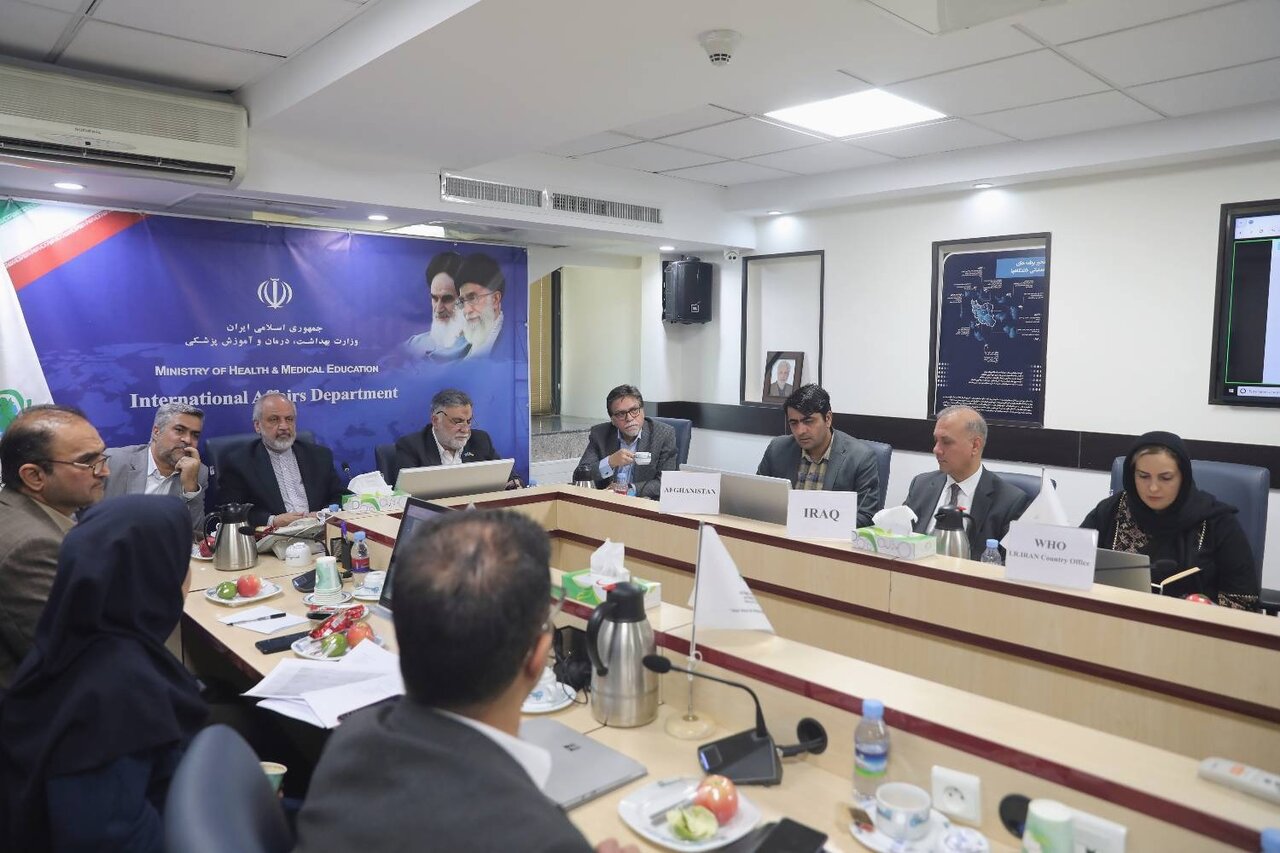Tehran hosts G5 health officials on dengue fever, mpox

TEHRAN – The 30th Technical Meeting of G5 Forum member states (Afghanistan, Iran, Iraq, Pakistan, and Tajikistan) plus the World Health Organization was held in Tehran on Tuesday to discuss the latest scientific findings concerning the outbreak of dengue fever and monkeypox.
The main objectives of the meeting were to share experiences and knowledge on the most effective ways to prevent and control the spread of dengue fever and mpox, as well as existing challenges, the health ministry’s website reported.
Officials also explored the role of bordering countries in preventing the transmission of the diseases.
The event provided a great opportunity to strengthen international cooperation in public health and raise awareness about communicable diseases. It is expected to boost treatment strategies as well as preventive measures in member states.
Iran initiated the establishment of the G5 in 2005 to promote subregional cooperation in health among the group of four countries – Afghanistan, the Islamic Republic of Iran, Iraq, and Pakistan – plus the World Health Organization as the fifth member of this group to provide technical support in improving this collaboration.
Several activities have already been taken under this initiative, with the Islamic Republic of Iran taking responsibility for serving as its secretariat.
The first subregional workshop for G5 countries on health system strengthening was hosted by the Ministry of National Health Services, Regulations and Coordination of Pakistan on November 19–20, 2013 in Islamabad, Pakistan.
Dengue fever
Dengue is a viral infection transmitted to humans through the bite of infected mosquitoes.
Transmitted by Aedes mosquitos, the disease was placed among the top ten life-threatening diseases by the World Health Organization (WHO) transmitted by local carriers in 2019.
Thanks to effective border control measures and quality healthcare, the number of people entering the country having dengue fever has significantly decreased compared to the previous months.
However, a decrease in temperature accompanied by the rains in autumn can contribute to the resurgence of the mosquito density, particularly in the affected areas.
“The most important factor that contributes to dengue transmission worldwide is climate change; increase and change in temperature has led to the outbreak of various infectious diseases including dengue fever,” IRNA quoted Hossein Farshidi, an official with the health ministry, as saying.
According to the World Health Organization (WHO) report, dengue fever cases in 2023 surged twofold globally, and the number of deaths caused by the disease also increased by the same factor.
Fortunately, since the outbreak of the disease, there has been no report of acute cases in Iran, and there is no reason to be concerned about the spread of the disease in the country, the official noted.
The health ministry has implemented measures to address the probable increase in infected cases in autumn.
The ministry is also planning to develop a training package to inform individuals, particularly passengers, medical staff, and journalists of the ways to prevent, or manage dengue fever.
Mpox
Mpox is an infectious disease caused by the mpox virus. It can cause a painful rash, enlarged lymph nodes, and fever. Most people fully recover, but some get very sick.
Common symptoms of mpox are a skin rash or mucosal lesions which can last 2–4 weeks accompanied by fever, headache, muscle aches, back pain, low energy, and swollen lymph nodes.
In August, Babak Eshrati, an official with the health ministry said there have been no reports of monkeypox in the country so far.
Following the report of confirmed cases of monkeypox in Pakistan, medical teams at health stations are told to screen travelers entering the country from eastern and western borders for monkeypox symptoms, as well, IRNA quoted Eshrati as saying.
MT/MG
